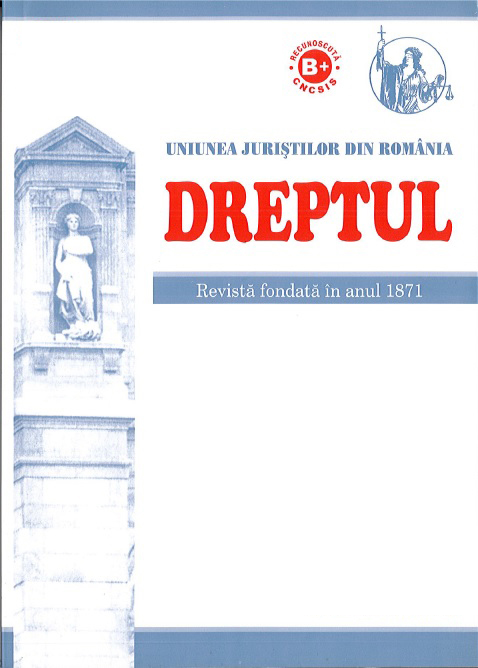The present study analyzes how the trial procedure for the application for voluntary intervention was regulated by the Law No 134/2010 on the Civil Procedure Code and the arguments for which the author considers that it is not justified to change this procedure by the Law No 310/2018 for amending and supplementing the Law No 134/2010 on the Civil Procedure Code, as well as for amending and supplementing other normative acts.
The result of the study is reflected in the opinion according to which the conclusion of rejection as inadmissible of the application for voluntary intervention had to be maintained in the form existing before the adoption of the Law No 310/2018, namely that it can be challenged separately.
Thus, the conclusion of the admission in principle could only be challenged at the same time with the merits, whereas in the event that the application for intervention is rejected as inadmissible, the conclusion could be appealed within 5 days, which was running from ruling for the present part, respectively from the communication for the missing part. The legal remedy was only the appeal, if the conclusion was given at first instance, respectively only the review to the hierarchically superior court, if the conclusion was pronounced in appeal.
The settlement of the legal remedy took place within a short time limit of no more than 10 days of registration, the file being submitted to the judicial control court in a certified copy for conformity with the original, within 24 hours of the expiration of the time limit. The legal remedy had suspensive effect, the examination of the main claim being suspended until the appeal is settled.
By the Law No 310/2018 it was amended the court procedure, referring to the means of appeal that can be exercised against the conclusion through which the application for voluntary intervention was settled. In this regard, irrespective of the fact that the court admits or rejects the application, the conclusion can only be challenged at the same time with the merits. In this way, the potential intervener has to wait for the finalisation of the litigation to be settled before the first instance or before the court of appeal, in order to be able to benefit by his right.
If the means of appeal exercised against the conclusion of rejection of the application for intervention as inadmissible, the judgment pronounced is cancelled by law, following that the case be re-judged by the court before which the application for intervention was formulated, which is usually the first instance, but, by exception, it may also be the instance of appeal. The resumption of the trial is made at the time when the admissibility in principle of the application for intervention is discussed. In the author’s opinion, by the re-examination at this point, the process is delayed, since all the procedural acts carried out must be resumed.
Maintaining the possibility of separately challenging of the conclusion of rejection as inadmissible of the application for voluntary intervention, in the author’s opinion, was contributing to the unitary settlement of the litigation at the first instance, and by regulating some short time limits for the means of appeal, it was ensured the compliance with a reasonable time limit for the finalisation of the trial.


